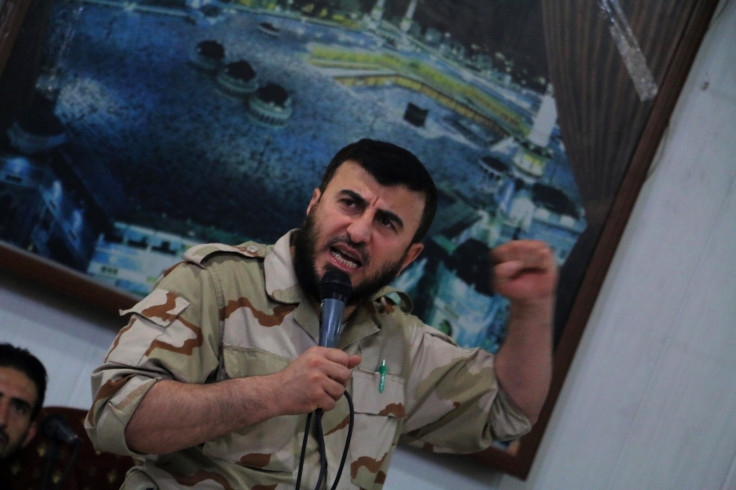Syria Rebel Chief's Death Raises Concerns Over Fate Of Geneva Peace Talks

Even as a team of international negotiators seek to end the conflict in Syria and resume talks over political transition in the war-ravaged nation, the death of Zahran Alloush — a key rebel chief — threatens to imperil the process. According to analysts quoted by the Agence France-Presse (AFP) Sunday, Alloush’s death could further radicalize rebel fighters in Syria and push them closer to the Islamic State group.
“He [Alloush] occupied a space between the extremists and the Free Syrian Army, which was important to hold off the spread of ISIS in the short term and unify the rebels vis-a-vis the regime in the long term,” Andrew Tabler, an analyst at Washington Institute for Near East Policy, told AFP.
Alloush, who headed Jaish al-Islam — one of the largest rebel groups in Damascus province — was reportedly killed Friday in an airstrike claimed by the Syrian government. The group, which recently agreed to peace talks with the Bashar Assad regime, was also fighting ISIS militants in the Eastern Ghouta region.
A number of other senior commanders of the group and those of the ultraconservative Ahrar al-Sham and Faylaq al-Rahman groups were also killed in the airstrike.
Alloush’s death is “a major blow to the rebels,” Karim Bitar, a senior fellow at the Institute for International and Strategic Affairs, told AFP. “It might temporarily help the regime, as his disappearance reinforces the binary Assad-versus-Daesh [ISIS] dichotomy.”
Alloush’s death came just a day before Staffan de Mistura, the United Nations Special Envoy for Syria announced Jan. 25 as the date for the next round of peace talks. The talks, which, among other things, aim to set a timetable for a ceasefire and political transition, will be held in Geneva.
Jaish al-Islam was the strongest and the most hardline faction that participated in a previous round of negotiations in Riyadh.
“If the Islam Army [Jaish al-Islam] has trouble getting its house in order after Zahran Alloush’s death, or is caught up in rivalries with factions seeking to increase their share in the Eastern Ghouta’s war economy, or is weakened, this could have a negative effect on the opposition’s ability to conduct talks in Geneva,” Aron Lund, a Syria expert, wrote in an analysis for the Syria Comment blog, likening Alloush’s death to a “decapitation strike.”
© Copyright IBTimes 2025. All rights reserved.






















